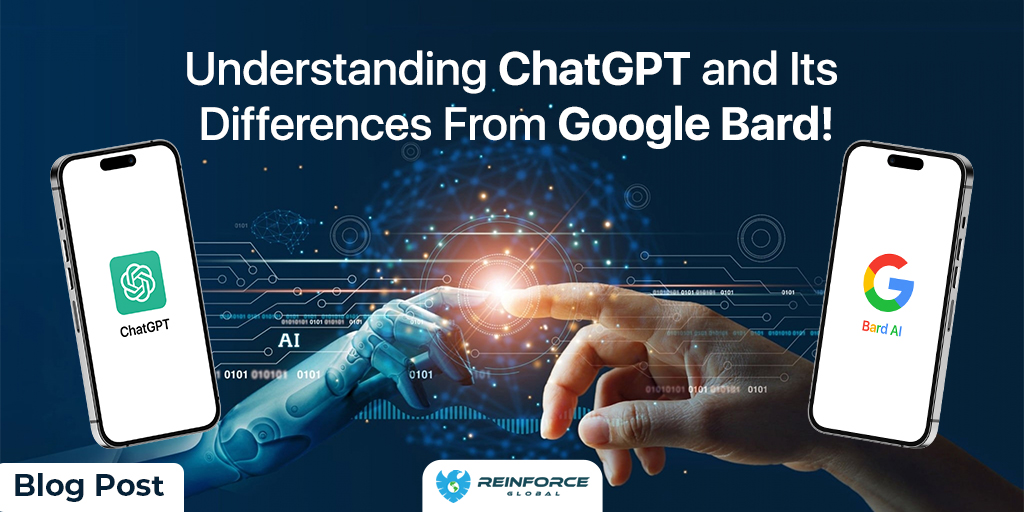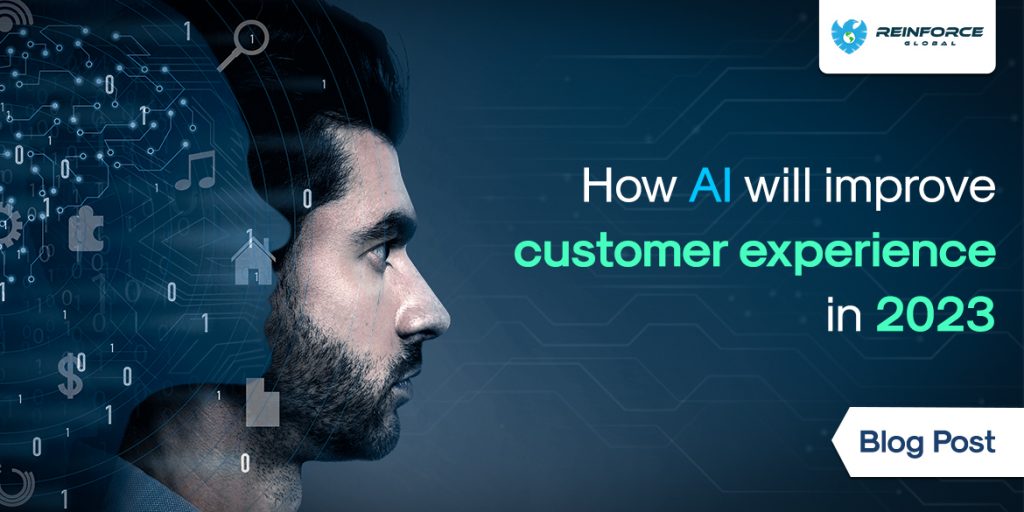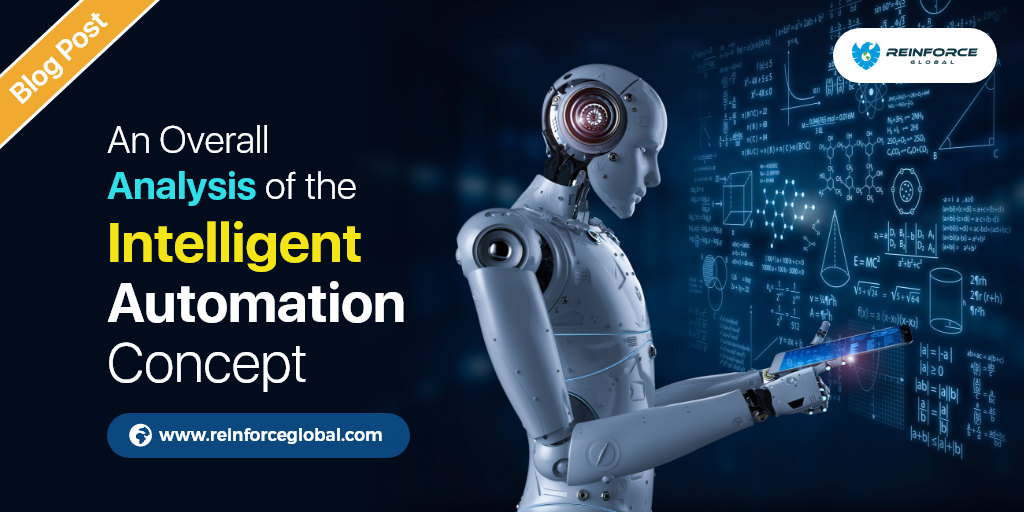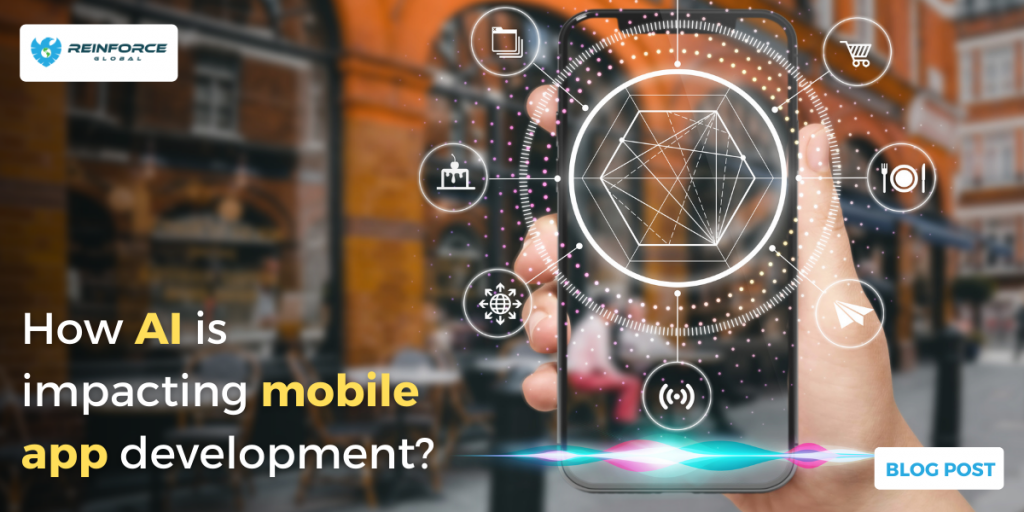AI intelligence is taking the world to new heights each day. From automating simple everyday processing to replacing heavy machinery in industries, AI, coupled with various other technologies, has changed the technology landscape. ChatGPT is one of the prime examples of AI revolutionizing the world.
If you are from the IT sector, there is no chance that you haven’t heard of ChatGPT. Since its release in November 2022, it has taken the world by storm. And soon after that, Google took out one of the best pieces of its arsenal, Bard.
So, whether you are aware of these two AI rivals or not, the coming sections will surely be fruitful for you!
What is ChatGPT?
If you don’t know, let’s put some light on ChatGPT.
ChatGPT is an AI-backed chatbot that provides human-like responses against the text inputs provided by the users. Now, some of you may argue how it is different from Jasper, Quillbot, and other similar tools. Well, there are many differences, but one key difference is that it is not connected to the internet. Moreover, it is not linked with any type of external information.
ChatGPT generates responses that are conversational and are generated from the data it has been provided. Hence, making it a language-processing system and not a search engine.
How does ChatGPT generate responses?
To elaborate further, ChatGPT generates human-like text and does not access the internet to do it. How? The process is called pre-training, in which a system is provided with heaps of data, and the system is tuned to establish relationships between words and concepts. This can be further used for translation and summarization.
One doubt some of you might have in your mind, what is the source of information for ChatGPT? The data provided to train ChatGPT includes sources like books, websites, and a number of articles.
With the help of these resources, ChatGPT is capable of generating a plethora of content types, such as
- Program and software codes
- Social media posts
- Cooking recipes
- Blogs and articles
- Emails drafts
- Summaries
- Jokes
- Law briefs
And much more!
GPT-3 — The Model Behind ChatGPT!
We have been talking about ChatGPT for some time now. Let’s get a bit technical!
GPT in ChatGPT stands for Generative Pre-trained Transformer. ChatGPT is an implementation of GPT-3, which is an exceptional neural network machine learning model. So far, GPT-3 is the most powerful model ever created. Why?
Unlike Microsoft’s Turing Natural Language Generation model, which featured 10 billion parameters, GPT-3 is created with 175 billion parameters that provide it lightning-fast speed to process billions of words per second. Further, ChatGPT excels at understanding the context of the conversation with the help of self-attention mechanisms.
Bard – The Rival to ChatGPT Initiated By Google!
In the last three and half months, ChatGPT has acquired millions of daily active users. If we go by the numbers, by the end of December 2022, it garnered over 57 million users. The number further climbed to 100 million by the end of January 2023.
As most of the online community started calling it the replacement of Google, Google stepped in to defend itself and launched Bard.
Google Bard is an AI chat service that is backed by the revolutionary Google’s LaMDA. Expanded as Language Model for Dialogue Applications, Google LaMDA was unveiled by the tech giant two years ago. Though Google was ahead in the game with its Transformer technology invention, it is not a frontrunner in the AI revolution.
How is Bard Different From ChatGPT?
We know that ChatGPT has set the bets high, and it will be difficult for any tech giant to face it. Google Brad has the capability to match ChatGPT. However, it will take time as Google has just launched Bard with limited capabilities as of now.
Bard vs. ChatGPT — Key Differences
Other than being developed by different tech giants, these AI chatbots can be differentiated based on some points!
- Source of information
One of the chief differences between Google Bard and ChatGPT is their source of information. As elaborated in the previous sections, ChatGPT is not connected to the internet but is fed with heaps of data from various sources. It uses AI to fine-tune the data and provide relevant human-like responses to the users.
On the other hand, Google Bard leverages the power of the web to provide all the information.
- Quality of information
As the source of information for Google Bard is the web, the quality of information will be good. It will generate responses that will have the latest information, and that information will be fine-tuned and detailed as compared to the standard Google search results.
In contrast, ChatGPT is trained on a limited set of data which means the responses to user queries will only be limited to those data sources. The user may not get the latest information on some queries.
- Technology
The third distinguishing feature between the two is the technology used. Google Bard uses LaMDA, which uses the open-source network to comprehend natural language. Moreover, LaMDA is trained to look for patterns between different words and sentences to generate an output.
On the other hand, ChatGPT uses GPT-3, which is a powerful Generative Pre-trained Transformer. It generates human-like responses by deeply analyzing the importance of words and phrases in the input queries. ChatGPT does not need a grammatically correct sentence to provide a response; it can generate an output based on a few words too.
The Future of Chatbots!
As of now, Google is considered late as ChatGPT has covered most of the market. Moreover, Microsoft plans to combine ChatGPT with the Bing search engine, which will be another impediment for Google to overcome. ChatGPT has also launched its premium service at an affordable price.
However, Google has announced that AI features will be seen in the Google search engine in the coming time. So the users might get to see refined results.
Conclusion
ChatGPT is one of the best inventions of the 20th century. As people have started calling ChatGPT an alternative to Google search, Google will not stay silent on this. As of now, it has rolled out the most basic, low-power consuming version of Google Bard. However, it is not certain or in any way speculated what the search giant is up to.
If you want to understand these chatbots or want to build one of your own, you can get a quote from Reinforce Global.



